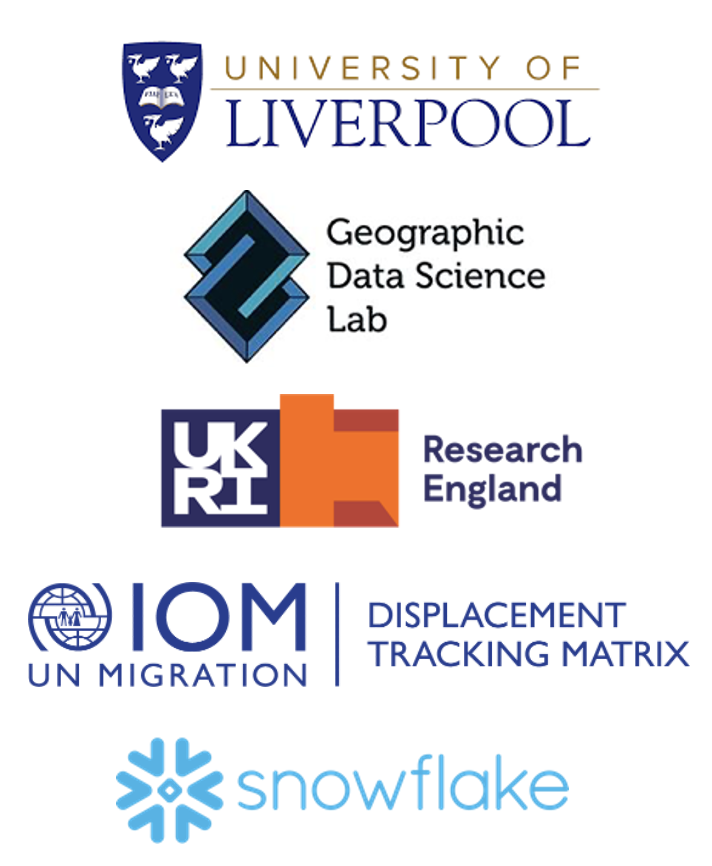Output
Pre-Hackathon Meetings
Two pre-Hackathon meeting will take place online.
Team Formation & Problem Selection: Participants meet their teammates and choose a problem statement to work on.
Pre-Hackathon Demo (Snowflake)
📅 Friday, 16 May
🕚 11:00 AM (BST)
This session will cover:
Gain access to the datasets
Learn how to connect to Snowflake accounts and locate datasets and demo code.
Introduction to Snowflake’s geospatial analysis capabilities
Using Snowflake Notebooks (similar to working in Jupyter) to build demographic, time-series, and geospatial infographics
Example of templates for AI-generated summaries and AI-driven insights between demographic and geospatial data
For those preferring to work locally, a Jupyter Notebook template for connecting to Snowflake will also be shared.
What Groups should keep in mind
Participants will focus on triangulating key indicators of displacement and presenting their findings in clear, accessible formats that can inform both policymakers and humanitarian responders. The goal is to develop a compelling “Message + Infographic (Map or Other)”—a concise narrative supported by data visualisation —that can serve as a proof of concept for improving disaster response in future scenarios.
Infographic: Most effective visualisations are usually a combination of images: maps + plots + icons, etc.
Code: Teams are strongly encouraged to submit any code developed during the Hackathon. This may include the creation of a GitHub repository to share scripts, data pipelines, or analysis workflows. Open and well-documented code will help ensure the solutions are reusable and scalable for future disaster response efforts.
🛠️ Note: UoL may implement the proposed indicators into a software package and is eager to take the lead in developing this package as part of a collaborative effort.
This Hackathon offers an opportunity to contribute to tools and strategies that could significantly improve disaster response and resilience, not just in Pakistan but globally.
Output to be submitted
Each team should prepare a concise presentation (around 5 slides) to showcase their work at the end of the Hackathon. Focus on clear and compelling communication of your findings—impact matters as much as accuracy.
In addition, teams are strongly encouraged to submit any code developed during the Hackathon. Sharing your code (e.g., via a GitHub repository) helps ensure that your solutions are reproducible, scalable, and ready to support future disaster response efforts.
